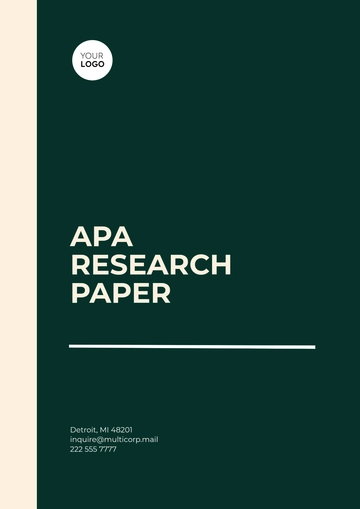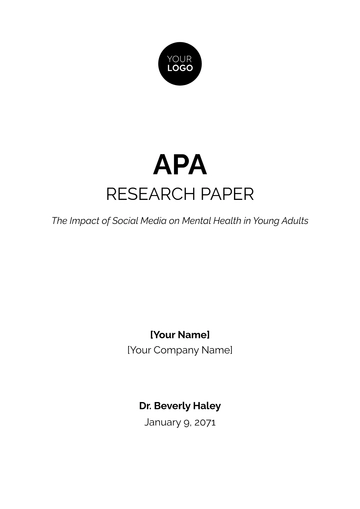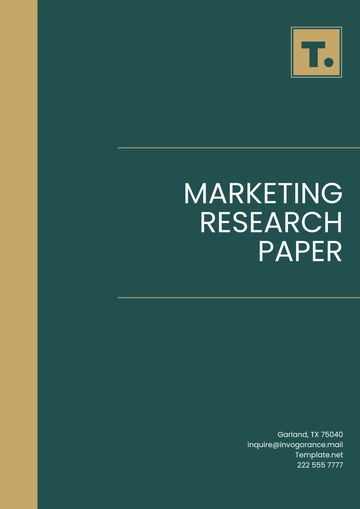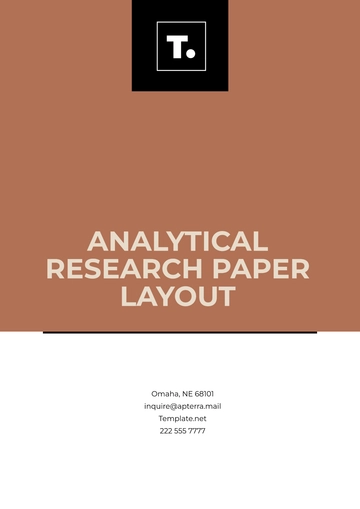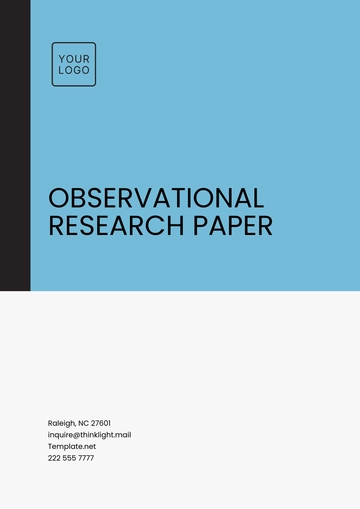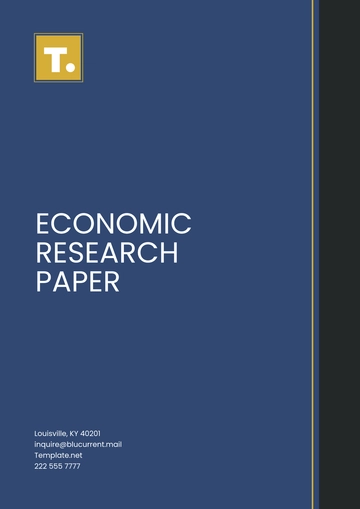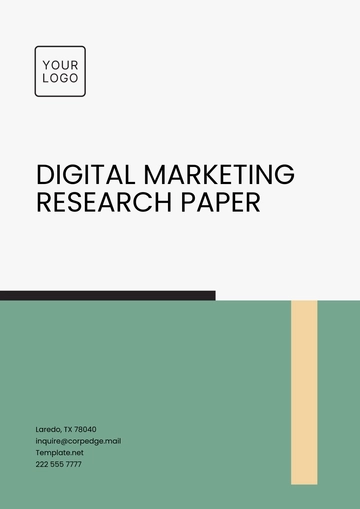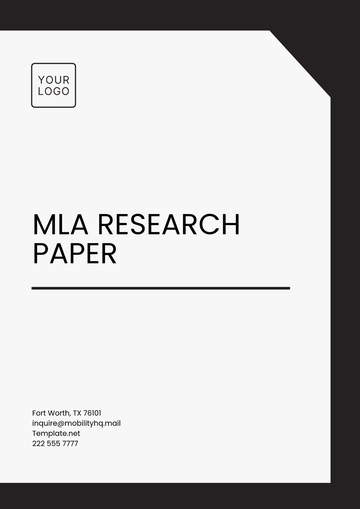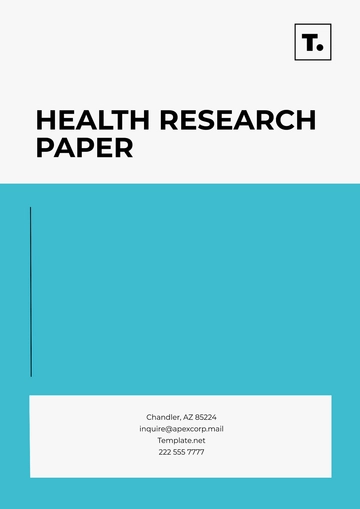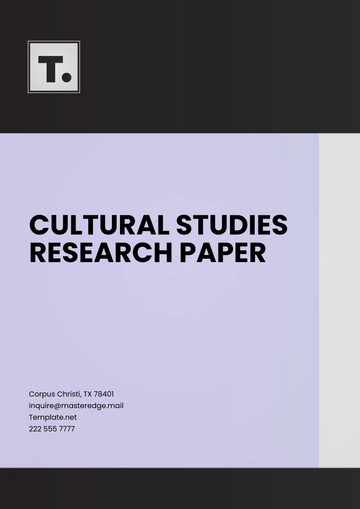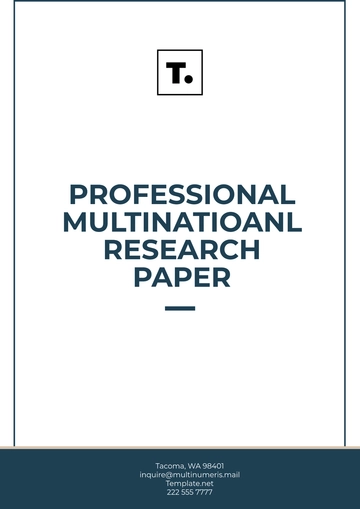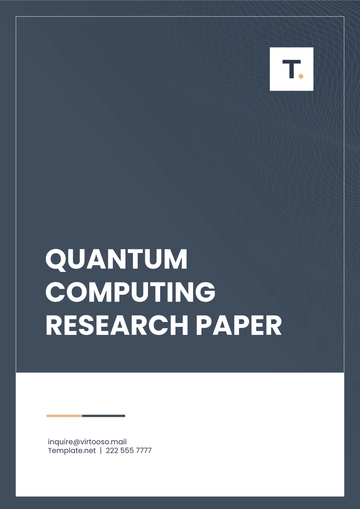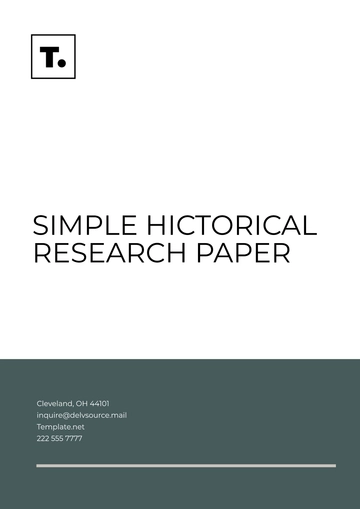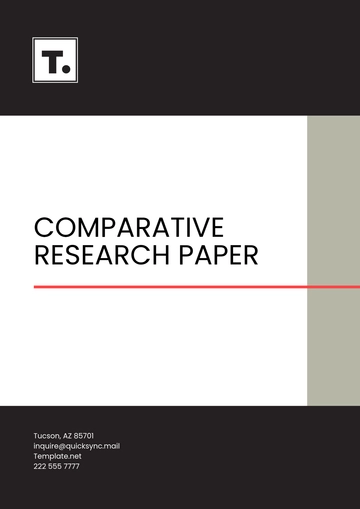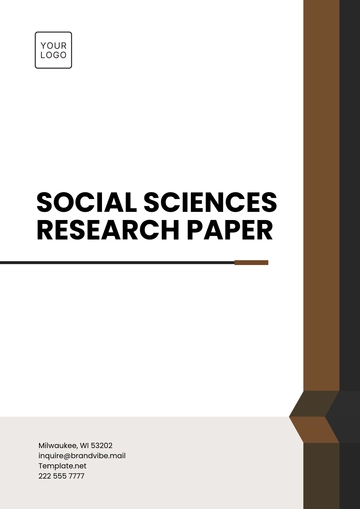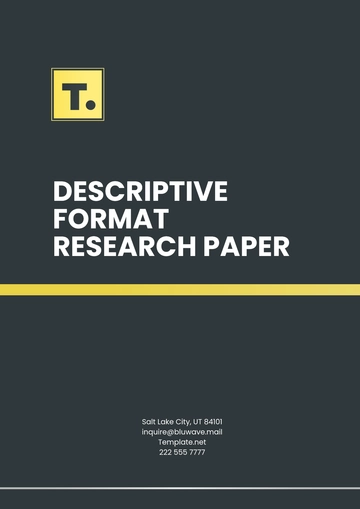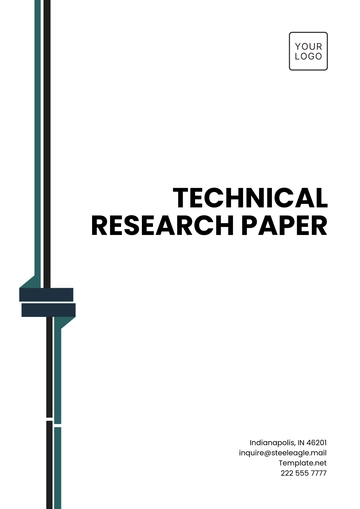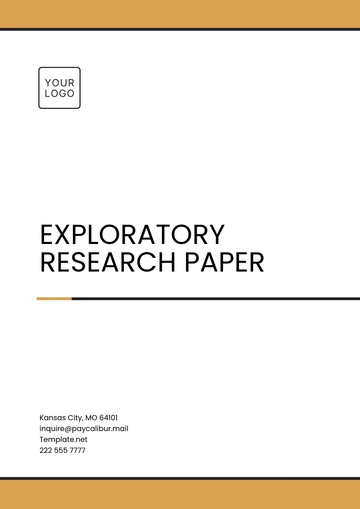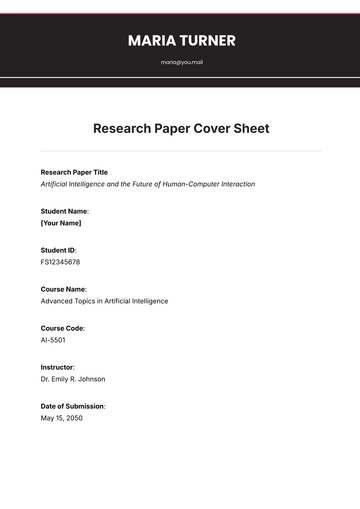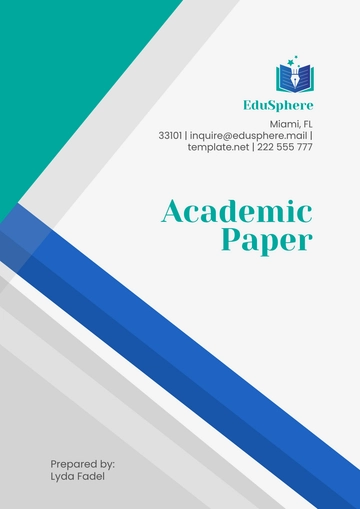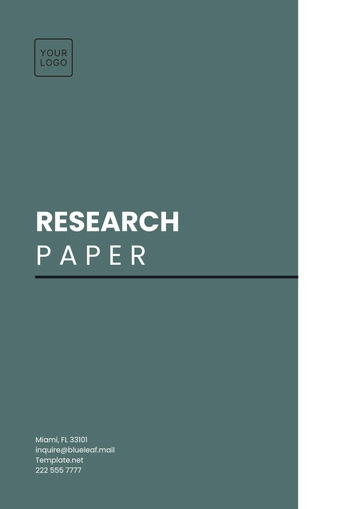Free Graduate Research Paper Design

I. Title Page
Title of Paper: The Impact of Renewable Energy Adoption on Urban Sustainability: Policy and Practice Perspectives
Author: [Your Name]
Course Name: Advanced Environmental Science and Urban Studies
Instructor: Dr. Emily T. Carson, Ph.D.
Submission Date: June 15, 2060
II. Abstract
This comprehensive study investigates the influence of renewable energy adoption on urban sustainability through a detailed analysis of five diverse metropolitan areas. The research identifies pivotal factors such as policy incentives, economic feasibility, and public awareness that significantly affect adoption rates. Results underline the importance of localized strategies and innovative funding mechanisms, offering a framework for cities aiming to enhance their sustainability goals.
III. Introduction
A. Background Information:
The escalating impacts of climate change necessitate a transformation in urban development practices. Renewable energy, with its potential to reduce greenhouse gas emissions, has become integral to achieving sustainable urban growth.
B. Research Problem:
Despite technological advancements and environmental imperatives, urban areas face substantial challenges in adopting renewable energy solutions, ranging from financial barriers to public resistance.
C. Research Objectives:
This paper aims to:
Identify obstacles to renewable energy adoption in urban environments.
Evaluate the effectiveness of existing policies in fostering adoption.
Propose actionable strategies tailored to diverse urban contexts.
IV. Literature Review
Overview of Existing Research: Extensive literature highlights renewable energy’s critical role in sustainable development, emphasizing policy design, technological innovation, and societal acceptance as key enablers.
Gaps in Research: Comparative studies addressing intercontinental differences in urban renewable energy adoption remain scarce, leaving a significant knowledge gap.
Contribution of This Study: This research bridges the gap by offering a cross-regional analysis, uncovering unique challenges and solutions in North America, Europe, and Asia.
V. Methodology
Research Design: A mixed-methods approach was adopted, combining qualitative analyses of urban policy case studies with quantitative assessments of adoption metrics.
Data Collection: Primary data were collected through structured interviews with policymakers and industry experts, supplemented by surveys of urban residents. Secondary data sources included government publications and academic journals.
Analytical Techniques: Regression models were applied to quantify correlations between policy incentives and adoption rates, while thematic coding was used to analyze qualitative data.
VI. Results
A. Key Findings:
Cities implementing robust financial incentives observed adoption rates exceeding 50%, compared to less than 20% in cities without such policies.
Public-private partnerships emerged as a critical success factor in overcoming infrastructure challenges.
VII. Discussion
Interpretation of Results: Findings reveal a multifaceted relationship between economic, cultural, and infrastructural factors. While financial incentives are vital, public engagement initiatives significantly amplify policy effectiveness.
Implications: Urban planners and policymakers must adopt a holistic approach, integrating financial, social, and technological strategies to achieve sustainable outcomes.
Limitations: The study’s focus on major metropolitan areas may limit its applicability to smaller or rural settings. Future research should address these contexts to generalize findings.
VIII. Conclusion
A. Summary of Findings:
This research underscores the critical importance of policy design and cultural engagement in driving renewable energy adoption, offering practical insights for urban sustainability.
Recommendations:
Expand financial incentives, such as tax rebates and grants.
Foster public-private collaborations to address infrastructural bottlenecks.
Implement education campaigns to enhance public awareness and support.
Future Research:
Future research should delve into examining the long-term impacts of renewable energy policies. Additionally, these analyses should be broadened to encompass various geographical regions and socio-economic contexts, ensuring a comprehensive understanding across different environments and demographic settings.
IX. References
Doe, J. (2058). Renewable Energy Policies in Urban Settings. Journal of Urban Sustainability, 12(3), 45-60.
Smith, L. (2059). Comparative Analysis of Solar Energy Adoption. Global Energy Research, 8(4), 32-48.
Taylor, R. (2057). Innovative Financing for Renewable Energy Projects. Energy Economics, 15(2), 75-91.
- 100% Customizable, free editor
- Access 1 Million+ Templates, photo’s & graphics
- Download or share as a template
- Click and replace photos, graphics, text, backgrounds
- Resize, crop, AI write & more
- Access advanced editor
Elevate your academic writing with the Graduate Research Paper Template offered by Template.net. This fully customizable template is easily downloadable and printable, ensuring a seamless research process. Editable in our AI Editor Tool, it allows you to personalize your content effortlessly. Perfect for students and professionals alike, this template is designed to meet the highest standards of academic excellence.
